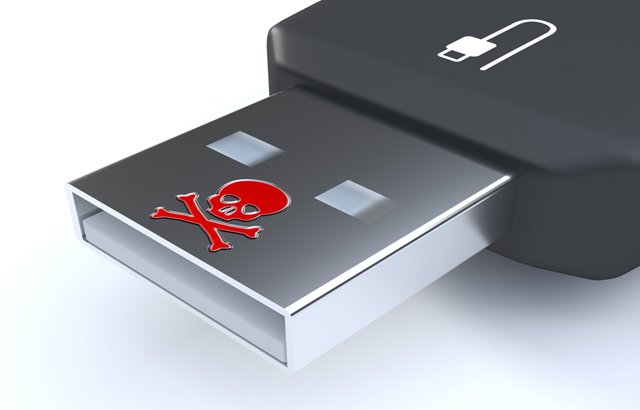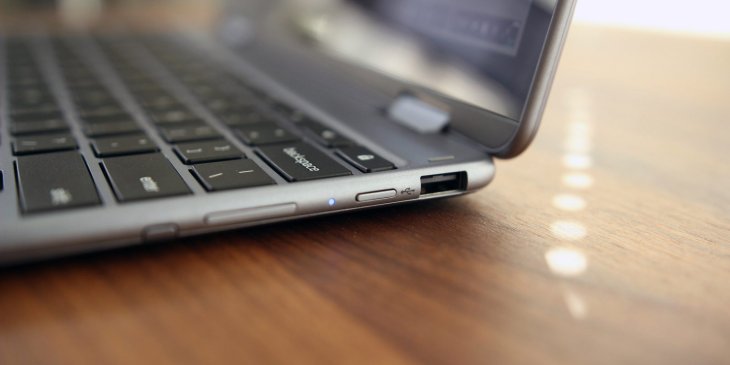Google's New Feature To Help Chromebook Users Prevent Attacks Over USB Ports
Anita - Jan 01, 2019

Google developed USBGuard as a measure to prevent Rubber Ducky attacks. Besides, it may come to the stable versions of Chrome OS in the coming time.
- Google's Project Toscana: Elevating Pixel Face Unlock to Rival Apple's Face ID
- Google Offers Voluntary Buyouts to US Employees Amid AI Push
- Google SynthID: Everything You Need to Know About AI Content Detection
The tech giant, Google, has announced the supplement of a new kind of security feature to the web-based operating system, Chrome OS that is destined for Chromebook laptops.
USBGuard is the name of this latest feature. It aims to prevent attacks from accessing laptops via USB ports while the screen of the Chromebook is locked.
At the beginning of this week, Chrome Story spotting a source code commit for Chrome OS revealed that users can now use USBGuard in Canary builds of the operating system. Besides, it may come to the stable versions of Chrome OS in the coming time.
In this case, to activate the new feature, users need to modify the Chrome OS flag as follows: chrome://flags/#enable-usbguard.
The main function of the security feature is to bar the operating system from executing, as well as reading all codes when a USB is connected to the laptop which is being locked.
Google developed USBGuard as a measure to prevent Rubber Ducky attacks. For those who don't already know, a Rubber Ducky is known as a harmful USB thumb drive that can copy a keyboard and run virulent commands when it is linked to a computer.

Similar to Rubber Ducky, PoisonTap, BadUSB, USBHarpoon, and USBdriveby have been also available on the Internet, which allows users to easily create a tool to attack through USB ports.
Attackers can access temporarily to any computers if they have a tool connected on these computers, even in the far distance, to collect data or pass harmful programs from their computers.
Fortunately, users can disable their USB ports on their laptops to avoid most attacks in security. Therefore, Google is making its efforts to offer Chromebook users a feature to deactivate all USB ports on their devices, even when they are not using these devices or locking the screen.
For further information, Apple also added this option for its operating system, iOS 11.4.1, 5 months ago. Before this OS allows every activity over USB ports, it will ask users to unlock their laptops that are in a locked state in one hour.
Featured Stories

ICT News - Feb 18, 2026
Google's Project Toscana: Elevating Pixel Face Unlock to Rival Apple's Face ID

Mobile - Feb 16, 2026
Xiaomi Launches Affordable Tracker to Compete with Apple's AirTag

ICT News - Feb 15, 2026
X Platform Poised to Introduce In-App Crypto and Stock Trading Soon

ICT News - Feb 13, 2026
Elon Musk Pivots: SpaceX Prioritizes Lunar Metropolis Over Martian Colony

ICT News - Feb 10, 2026
Discord's Teen Safety Sham: Why This Data Leak Magnet Isn't Worth Your Trust...

ICT News - Feb 09, 2026
PS6 Rumors: Game-Changing Specs Poised to Transform Console Play

ICT News - Feb 08, 2026
Is Elon Musk on the Path to Becoming the World's First Trillionaire?

ICT News - Feb 07, 2026
NVIDIA's Gaming GPU Drought: No New Releases in 2026 as AI Takes Priority

ICT News - Feb 06, 2026
Elon Musk Clarifies: No Starlink Phone in Development at SpaceX

ICT News - Feb 03, 2026
Elon Musk's SpaceX Acquires xAI in Landmark $1.25 Trillion Merger
Read more

ICT News- Feb 18, 2026
Google's Project Toscana: Elevating Pixel Face Unlock to Rival Apple's Face ID
As the smartphone landscape evolves, Google's push toward superior face unlock technology underscores its ambition to close the gap with Apple in user security and convenience.

Mobile- Feb 17, 2026
Anticipating the Samsung Galaxy S26 and S26+: Key Rumors and Specs
The Samsung Galaxy S26 series is on the horizon, sparking excitement among tech enthusiasts.

Mobile- Feb 16, 2026
Xiaomi Launches Affordable Tracker to Compete with Apple's AirTag
For users tired of ecosystem lock-in or high prices, the Xiaomi Tag represents a compelling, no-frills option that delivers core functionality at a fraction of the cost.

Comments
Sort by Newest | Popular